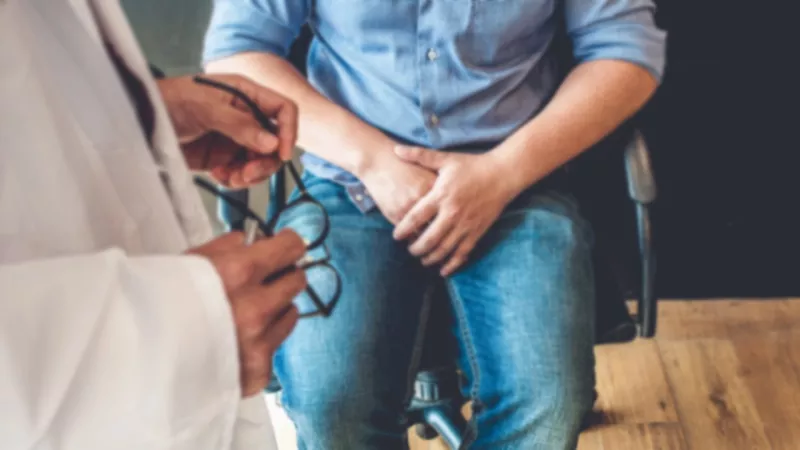Residents of Nairobi are on high alert following the discovery of a new, drug-resistant strain of gonorrhoea in the city. This is the first time this strain has been reported in the area, and health authorities are working to identify its source and contain the spread of the infection. Those who may have been exposed to the strain are being urged to seek medical attention immediately. In this blog post, we'll take a closer look at the new strain and the steps being taken to prevent its further spread. What is gonorrhoea? Gonorrhoea is a sexually transmitted infection (STI) caused by the bacteria Neisseria gonorrhoeae. It can be spread through unprotected sex, including vaginal, oral, and anal sex. In addition, it can also be passed from an infected mother to her baby during childbirth. It is important to note that gonorrhoea can be asymptomatic in both men and women, making it hard to detect without proper testing. Gonorrhoea can cause serious health complications if left untreated, such as pelvic inflammatory disease in women and epididymitis in men. It can also increase your risk of contracting HIV, as well as cause infertility in both sexes. It is therefore important to get tested for STIs on a regular basis and practice safe sex. If you do have symptoms, they may include burning while urinating, unusual discharge from the penis or vagina, bleeding between periods in women, or pain in the lower abdomen in women. If you have any of these symptoms or suspect that you may have contracted gonorrhoea, please visit a healthcare professional immediately. How is the new strain different? The new strain of gonorrhoea that has been detected in Nairobi is a multidrug resistant strain. This means it is resistant to many of the antibiotics that are commonly used to treat gonorrhoea, including cefixime and ceftriaxone. It is the first time this particular strain of gonorrhoea has been identified in Kenya. This particular strain of gonorrhoea is considered to be more difficult to treat as the antibiotics commonly used to treat it are not effective. This means people who have contracted this strain of gonorrhoea may require additional treatment, such as a longer course of antibiotics or stronger drugs. This new strain is also believed to be more infectious than other strains of gonorrhoea, meaning it can be spread more easily between people. This makes it particularly important to practice safe sex and get tested if you think you may have been exposed. How can you protect yourself? Protecting yourself from gonorrhoea is important and can be done in several ways. First and foremost, if you are sexually active, use a condom every time you have sex.

Condoms are the best form of protection against the transmission of STIs, including gonorrhoea. It is also important to limit your number of sexual partners. The more partners you have, the higher your risk of getting infected with STIs. If you do decide to engage in multiple sexual relationships, make sure you use condoms with all partners. You should also get tested regularly for gonorrhoea. This is especially important if you have multiple partners or engage in high-risk behaviors, such as unprotected sex or drug use. Regular testing can help you detect an infection early, which can reduce your risk of long-term health consequences. Finally, it’s important to talk to your partner about STIs and use of protection before engaging in any type of sexual activity. Communication is key in preventing the spread of infections. What are the symptoms? Gonorrhoea is a sexually transmitted infection (STI) caused by the bacterium Neisseria gonorrhoeae. It can affect both men and women and can be spread through sexual contact with an infected person. Common symptoms of gonorrhoea in men include burning or pain when urinating, increased frequency of urination, white, yellow, or green discharge from the penis, and swollen testicles. In women, symptoms may include increased vaginal discharge, burning or pain when urinating, bleeding between periods, abdominal pain, pain during sex, and painful or swollen lymph nodes in the groin. It is important to note that not everyone who is infected with gonorrhoea will experience symptoms. Therefore, it is important to get tested if you have had unprotected sex with a partner whose sexual history you don’t know. This is especially important if you are pregnant as an untreated infection can cause serious health problems for both mother and baby. Where can you get tested? If you think you may have been exposed to the new strain of gonorrhoea, it is important to get tested. In Nairobi, there are several places you can go for testing. The Kenya Medical Research Institute (KEMRI) operates a number of clinics across the country which offer sexual health services.

These clinics have been set up to address the prevalence of sexually transmitted infections (STIs) in the region and provide confidential testing, treatment and counseling services. In addition, there are many private medical centers in Nairobi where you can receive testing and treatment. However, it is important to note that these facilities may be more expensive than public clinics. The Nairobi County Health Department also offers free testing and treatment for those who cannot afford to go to a private clinic. The county runs mobile units which can travel to rural areas to provide access to health services for those who cannot otherwise afford them. Finally, there are a number of non-profit organisations in Nairobi that offer free STI testing and treatment. These organisations provide confidential services and often work with local authorities to ensure that everyone has access to quality care regardless of their income. It is important to remember that no matter where you go for testing, your privacy will be respected and all treatments are done with respect for your dignity and safety. If you are worried about getting tested, speak to a healthcare professional who can help answer any questions you may have.




